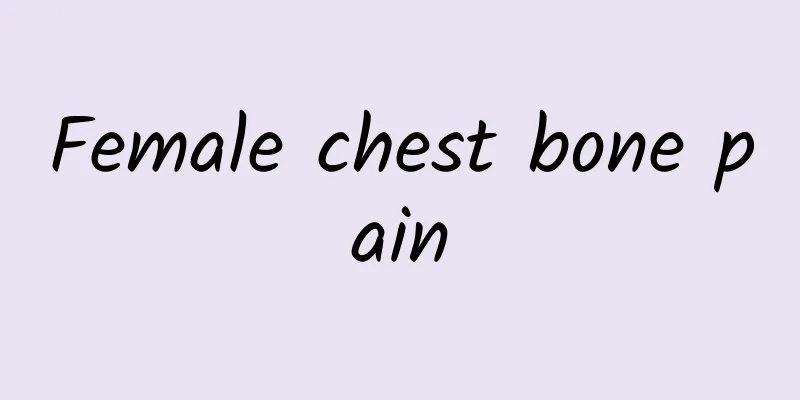Traditional Chinese medicine treats bullae, and dialectical treatment has good results

|
Bullae, also known as bullous emphysema, is a very common disease in cardiothoracic surgery. Bullae are divided into three stages. When treating this disease, it is also necessary to promptly determine the course of the disease and conduct targeted treatment. Traditional Chinese medicine is very effective in treating bullae, especially the dialectical treatment of traditional Chinese medicine. 1. Treatment principles 1. Clear the lungs and relieve asthma, eliminate phlegm and relieve cough, ventilate and activate blood circulation, disperse nodules and restore elasticity, repair airway inflammatory lesions, eliminate airflow obstruction and airway hyperresponsiveness to treat the symptoms. 2. Warm the Yang and strengthen the foundation, regulate the whole body, and enhance the body's adaptive regulation to cure the root cause. 2. Treatment based on syndrome differentiation 1. Wind-cold infection [Main symptoms] Cough and asthma, white and thin sputum, aversion to cold and headache, no sweat, thin white tongue coating, and floating and tight pulse. 【Therapeutic Method】Dispel cold, clear lungs, resolve phlegm and relieve asthma [Prescription] Sanao decoction with roasted ephedra, raw licorice, apricot kernel, pinellia tuber, asarum 2. Phlegm and turbidity blocking the lungs [Main symptoms] Asthma and cough, thick sputum, cough without relief, chest tightness and pain, white and greasy tongue coating, and slippery pulse. 【Therapeutic Method】Expectorant and Asthma Relief [Prescription] Erchen Decoction and Sanzi Yangqin Decoction: Tangerine peel, Pinellia tuber, White mustard seed, Radish seed, Poria cocos, Licorice root, Thick-shelled garlic, Apricot kernel 3. Lung wheezing [Main symptoms] Shortness of breath, weak speech, low and weak cough, fear of wind and cold, sore throat, red face and dry mouth, pale red tongue, thin and weak pulse 【Therapeutic Method】Replenishing Qi, Nourishing Yin and Calming Asthma [Prescription] Shengmai powder with or without ginseng, polygonatum, mulberry bark, ophiopogon japonicus, adenophora australis, scutellaria baicalensis, schisandra chinensis, aster, astragalus, daiha 4. Kidney asthma [Main symptoms] Chronic cough and asthma, with worse wheezing when moving, fatigue, sweating, pale face, cold limbs and sore waist, pale tongue, and deep and thready pulse. 【Treatment method】Tonify the kidney and absorb qi [Prescription] Shenqi Pills with or without Aconite, Cornus officinalis, Cortex Moutan, Rhizoma Alismatis, Ginseng Bone Psoraleae, Cinnamon Bark, Rehmannia Glutinosa, Poria, Schisandra Chinensis |
<<: Symptoms of syringomyelia, early treatment when signs are found
>>: The most common causes of hemoptysis are
Recommend
Can mites on the head cause hair loss?
As we all know, mites can cause great harm to hum...
The reason why the whites of the eyes are slightly yellow
The yellowing of the whites of the eyes is mainly...
Fill tear troughs with autologous fat?
As people age, tear troughs become more and more ...
What causes synovitis? Here are the reasons
The causes of synovitis are different, and there ...
Does pregnancy cause memory loss?
Many pregnant women often find or complain during ...
White atrophic vasculitis
Patients with white atrophic vasculitis usually h...
What causes styes? Be careful of these factors
Stye is what we commonly call a stye. Never under...
What medicine should I take for throat congestion and swelling
The most common cause of throat congestion and sw...
What medicine is most effective for tinnitus?
Tinnitus is a disease in which abnormalities in t...
What is the function of deer antler cream?
Deer antler cream is a very famous traditional Ch...
What should you do if your child has a bad spleen and stomach? Be alert to the three major symptoms of weak spleen and stomach!
The health of the baby is what parents are most c...
Can a mother climb stairs during confinement?
We all know that during the first three months of...
What should I do if I have lumbar soft tissue injury and what should I pay attention to?
Soft tissue refers to the subcutaneous tissue, wh...
How to reduce finger joint lines
Many people have abundant lines and joints on the...
What is the part of the back of the head called and why does white hair grow?
Everyone looks different, even twins have differe...









